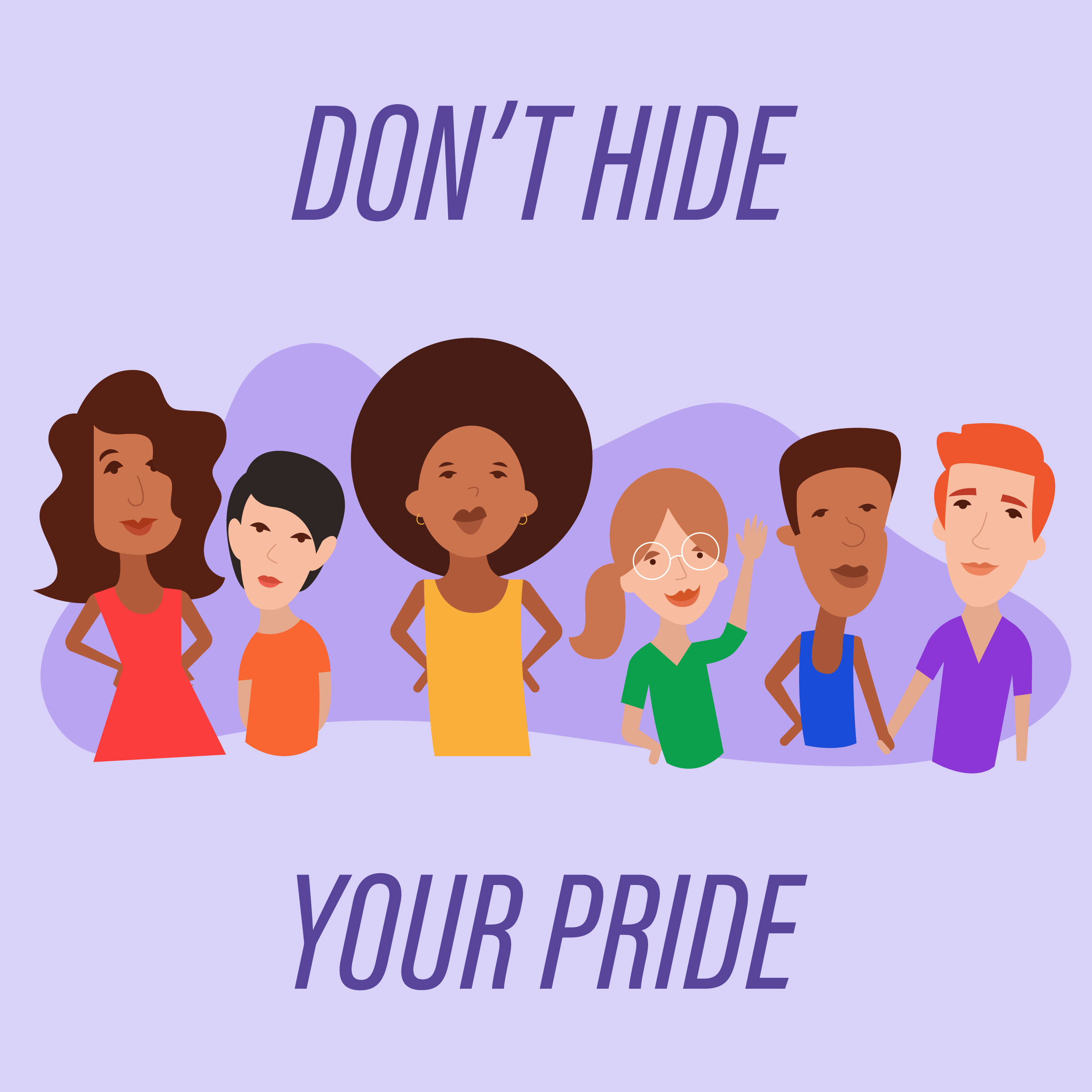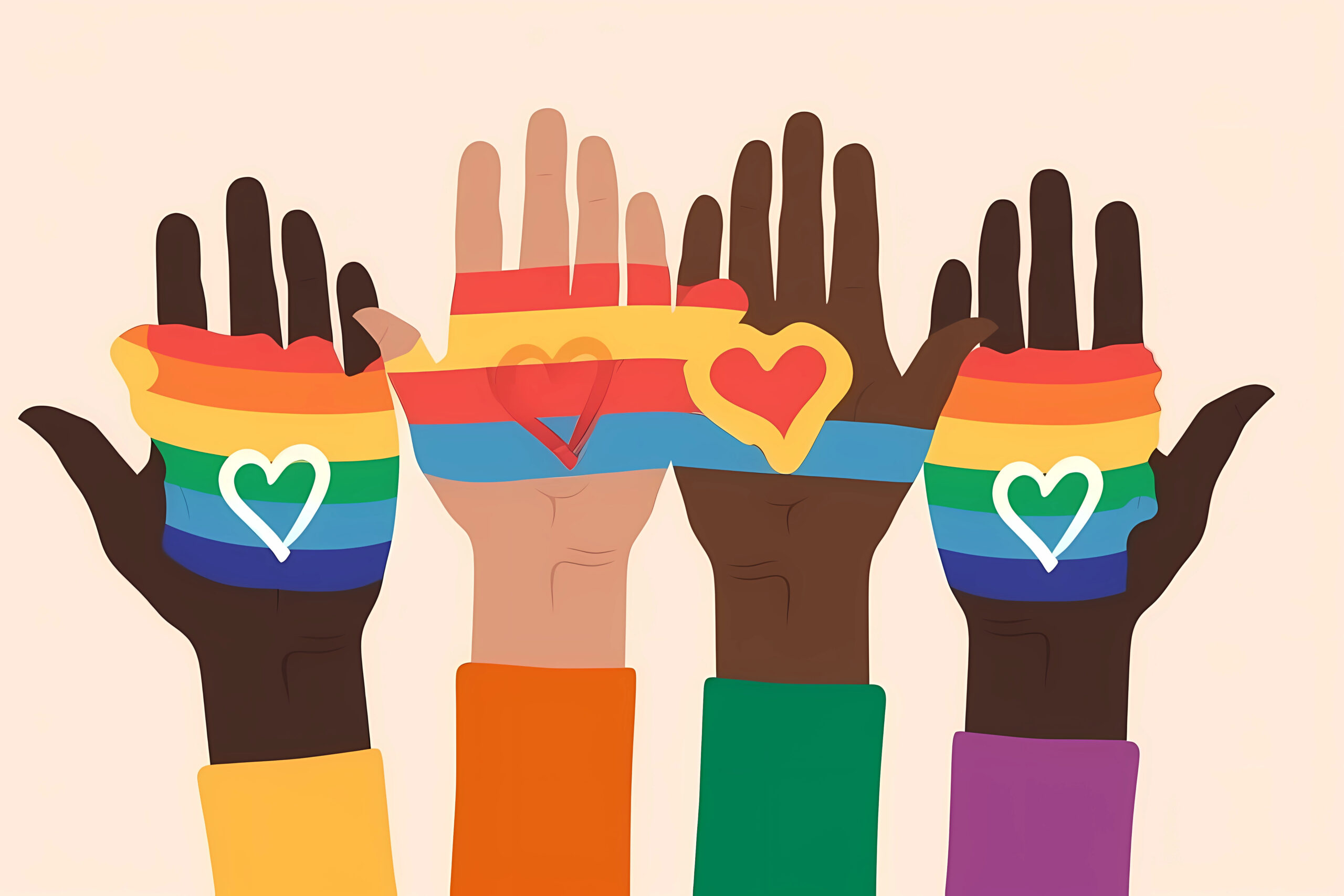Happy Pride! It’s been a month of rainbows and outdoor celebrations that seem a far stone’s throw away (pun intended) from the riots that inspired this month-long commemoration. Awareness of the Stonewall Riots and the trans women of color that spearheaded the movement has never been higher, but neither has the number of corporations jumping on the rainbow bandwagon to promote and perform their progressiveness. This little phenomenon, known as rainbow capitalism, comes with a big bag of complex pros and cons. Let’s dig in.
What is rainbow capitalism?
To put it bluntly, rainbow capitalism is the thing where, in June, companies start dropping rainbow colored paraphernalia for Pride month in order to capitalize on the social recognition of progressiveness and target the purchasing power of the LGBTQIA community and its allies. Or, as author and USC professor Karen Tongsen puts it, the “commodification of things related to LGBT culture, especially the concept of gay pride.” That means hopping on the pride bandwagon with multicolored marketing, and targeting the several trillion dollars of purchasing power that the LGBTQ+ demographic controls.
Is that bad?
Well, not necessarily… but it’s complicated.
The way in which companies might capitalize on performing support can fall short of providing any sort of meaningful change for the LGBTQ+ community, particularly along lines of intersectionality. However, for those of us who grew up in a time where visibility and acceptance of queer identities was minimal, the recognition of the queer experience can feel like a big deal.
The co-chairs of Creative Circle’s own LGBTQ+ Employee Resource Group, PRISM, hold a more optimistic view of the corporate rainbow parade. “Anyone that wants to be an ally and wants to celebrate the community, I want to encourage that and not make them feel like [they] have to earn the right to have a rainbow,” explained Kateland Gough, Talent Sourcing Specialist and PRISM co-chair. “I don’t like that mindset, that’s very exclusive which is the opposite of what we’re trying to be which is very inclusive.”
David Spake, fellow PRISM co-chair and Business Analyst, echoed these sentiments stating, “Any showing up and any public facing support of Pride has value.” Spake elaborates: “I think it’s important to remember that in many instances corporate policy leads our nation in cultural change. It’s because corporations really embraced domestic partnership benefits that so many Americans were able to have that protection — before there were legal protections in place. That alone shows how many corporations stepped up for their LGBTQ+ employees, even when they didn’t have to.”
Normalizing LGBTQ+ identities has a massive impact on society and social structures, creating a safer place for young people to grow up and question their identity without the confusion and fear that was once commonplace. How could that be a bad thing?
Well, some find the exploitative nature of marketing during Pride brushes over the issues of the most vulnerable. While many companies have improved their DEI initiatives, healthcare plans, and non-discrimination policies, there are other places where flags are waved while employee struggles are kept in the dark.
In a personal essay, professor and social psychologist, Dr. Devon Price exposes the contradictions of their Jesuit University celebrating pride by highlighting LGBTQ+ authors in the library while denying trans inclusive healthcare:
“While my university bills itself as a tolerant place, it all too often feels to me like its tolerance is simply convenient for its branding. Blue and pink flags and feel-good teaching awards can offer a pleasant scrim to hide the often discriminatory policies lurking beneath. Throughout my time here, I’ve witnessed the school invoke its status as a religious institution in order to discriminate against transgender employees, deny birth control to those that need it, and even use it to block employees from unionizing. I’ve also seen the school position itself as open to all students of all faiths and identities at the exact same time.”
Queer community and resource website LGBTQ and All published an article by Billie Olsen that explores the harm of Rainbow Capitalism:
“By not acknowledging the roots of queer oppression or the history of Pride, there can be devastating consequences. For instance, rainbow capitalism ignores the core of Pride and the continual violence enacted against different intersections of the queer community,”
While companies can reap profits from rainbow swag, those dollars and attention could be going towards organizations that actually help LGBTQ+ youth, or AIDS resource centers. If everything becomes glitter and rainbows, then the work that needs to be done is lost from focus, while the more “acceptable” forms of queerness take center stage.
A lot of companies that support the rainbow “have a lot of conflicting actions beyond the month of June,” explains Creative Circle Associate HR Business Partner, Denise Romero. Specifically, with regards to corporate spending and PAC donations. “Money talks and it really matters where these companies are putting their money.”
For example, there are companies that will rainbow their logos, while donating millions of dollars to anti-gay politicians. According to this investigation by Popular Information, since 2019, over 20 companies with solid LGBTQ+ engagement and publicity, as well as immaculate scores in the HRC index, have donated millions to anti-LGBT+ politicians.
Of course, this doesn’t factor in that many of these companies (or rather their PAC funds) donated more money to pro-gay politicians. Companies are lobbying for their bottom line for their industry. Can they support the LGBTQ+ community while supporting policymakers that will likely vote against meaningful change?
Pride, Intersectionality & Performative Allyship
The most vulnerable members of the LGBTQ+ community are those with intersectional identities — namely, trans, Black, Indigenous, and other queer people of color. Gay liberation feels safe as long as it stays within the binary of the dominant culture. So while defending gay marriage is something corporations are willing to champion, police and prison reform might be a step too far.
Senior Vice President of Talent Delivery and Operations, Lauren Schellenbach, wrote an internal piece for Creative Circle centering on trans people of color and intersectionality in their discussion of Pride. “Pride seems safe for companies,” they explained. “Juneteenth is still controversial, and I do think about this intersectionality where we come together.”
Last year, at the height of BLM protests, some companies were showing solidarity and openly stating Black Lives Matter, after years of diversity pandering with no real systemic support (through actionable items like bias trainings, education, donations, and anti-discrimination policies). Experts acknowledge that gauging whether that support becomes action will take time. Will promises be fulfilled?
Not always, like in Ferguson where companies pledged to invest, but have taken that investment into the affluent (and predominantly white) part of town. Y-Vonne Hutchinson, chief executive and founder of diversity consulting firm ReadySet, told the Washington Post: “There’s a lot of performative allyship going around. Nobody’s asking for a CEO to take a knee. You take the knee after you change your policies.”
When all you see is a logo, or a pledge, or a party, it’s hard to know what’s a pandering performance, and what’s a real conscious undertaking of what can actually help.
Do something. Like what?
A non-discrimination policy is the bare minimum. Transgender inclusive healthcare is even better. Employers are stepping up and offering benefits in record numbers according to HRC’s annual report and making sure those rainbow profits get to organizations that support at-risk LGBTQ+ communities from unhoused youth to those fighting HIV/AIDS.
“The one thing I would feel is more important throughout all of this is education,” said Romero. “There’s a lot of ignorance out there regardless of what side you’re on. Educate yourself and those around you. Hopefully that will one day come full circle. As many wins as we have, we still have a long road ahead. It’s amazing that kids can see that there are a lot of people that support Pride. Our youth has such a high suicide rate and at the end of the day we have a long way to go with that.”
Insurance that includes IVF treatment and adoption would also go a long way not just for LGBTQ+ partners, but straight partners who may have a hard time conceiving. Bringing a child into the world is already expensive. The steps some families have to take to get there add another burden, according to Romero.
Romero also shared with me that “Creative Circle is probably the first company I’ve worked for that I’ve felt really comfortable being out.” Queer leadership and fellow out employees help create a safe culture. Lauren Schellenbach’s visibility as an SVP is huge. But beyond that, open conversations, training and education initiatives play a big part in creating a culture on inclusivity.
Questioning all our binary biases — from assuming pronouns and identification, opposite sex partnership, and focusing on a baby’s gender — can all add up and push the conversation toward inclusion and help us all understand our own actual preferences rather than what’s expected.
“I’m always ambivalent at this point about participating in Pride events because they seem more like parties, and I’m old so I don’t go to the parties.” Schellenbach half joked. They continued exploring the complexity of this celebration: “I wish there was more ritual around celebrating your community and your history. I think there is more of that now, but I also think if we really want to celebrate, we probably should be protesting. And if we’re protesting, we should find the intersectionality. That’s where it is. It’s with our community of folks who are POC and even more marginalized because of the number of things that are going on for them. I think that’s where everyone can do a better job. Don’t just put a progressive flag on your logo, but actually do something.”
That something, can range from the points mentioned above to deeper systemic intervention in real communities, like San Francisco. For example, they explained, companies based in Silicon Valley could be doing more to preserve local queer and BIPOC communities that have been priced out of their homes. “Are they going into the community and going into places where people live, and saying ‘I’m going to preserve this area so it doesn’t break down into ridiculous prices, not just for LGBTQ+, but also BIPOC [residents]?” They also ask, “Why are you not giving back to the community in a way so our queer brothers and sisters don’t feel they have to move to Portland?”
As Canadian reporter Aimee Langer puts it in the CBC opinion section, rainbow capitalism is pandering, but that doesn’t mean it doesn’t help the big picture. “You can be frustrated about irresponsible and disingenuous pandering, but still acknowledge the inevitability of capitalist participation,” Langer wrote in an article published earlier this month. “Real change necessitates that companies do their pandering in good faith. This means consequential engagement, support, and policies not just during Pride Month, but year-round.”
Some action items Langer suggests include demanding inclusive workplace politics, hiring LGBTQ+ individuals at all levels of management, running community events, creating partnerships and mentorship initiatives, and creating internships and capital grant programs available to LGBTQ+ youth and entrepreneurs.
Spake and Gough shared that through PRISM, they have now established a pipeline for queer voices to be heard at every level of management that is recognized by the company. They’re even asked to approve of externally facing Pride-related graphics. It’s a process of building something and building on that ethos of education. “Every speck of dust adds up,” said Spake. “There are so many different ways to get involved. I think you just need to see what works for yours a person or a company,” added Gough.
So, where’s the line?
Well, there isn’t one. As much as we may want to point fingers at “bad guys” and celebrate “good guys,” the reality is much more complicated. There are things some companies are getting right. There are things some companies are getting wrong. Capitalism requires money to take the lead decision making in order for companies to turn a profit and thrive. Our humanity requires we hold people accountable for what they do. Democracy encourages us to make the policies and donations and education that happens behind closed doors more transparent to the public.
So perhaps the takeaway here is that we keep the celebration going beyond the month of June by encouraging education through an intersectional lens and taking a look at how deep corporate support goes. I don’t need every company to wave a flag, but if they’re offering comprehensive healthcare and having the tough conversations, that’s a step in the right direction, and it helps us all.
About the author.
Alessandra is the mentor, educator, and writer behind Boneseed, a private practice devoted to deep self-inquiry through a range of physical, energetic, and mental modalities. She has over 500 hours of yoga, mentorship, and facilitation training and can be found slinging knowledge on her website, newsletter, and @bone.seed.



